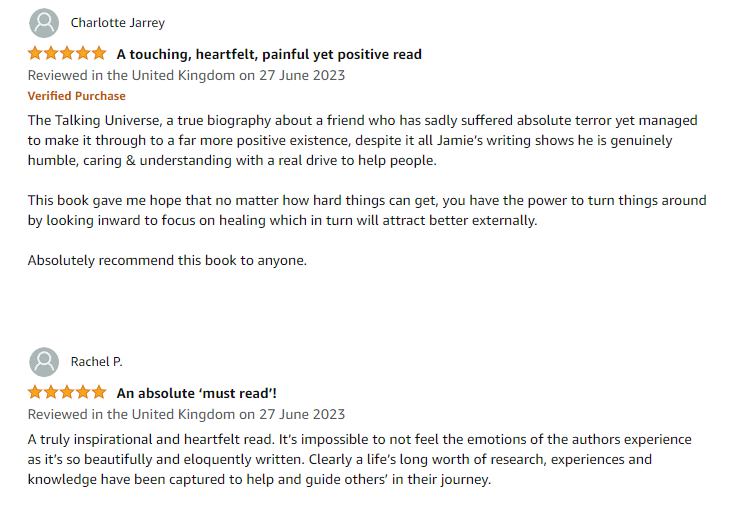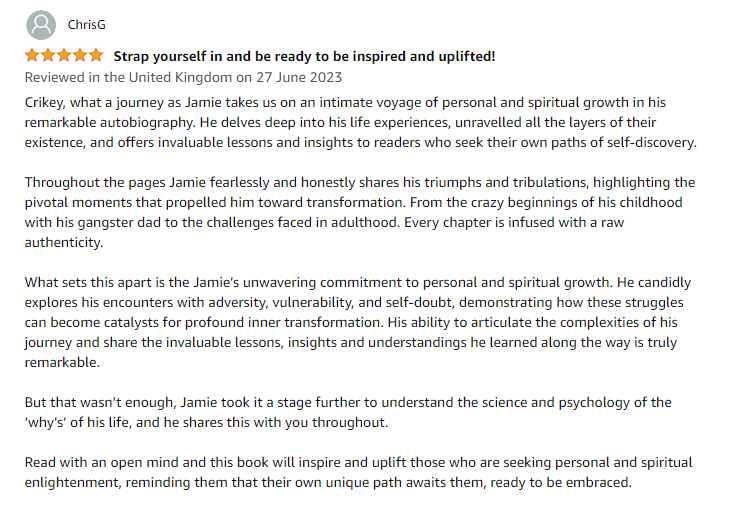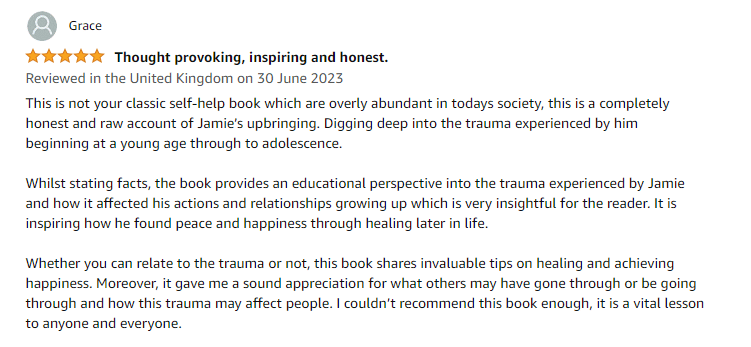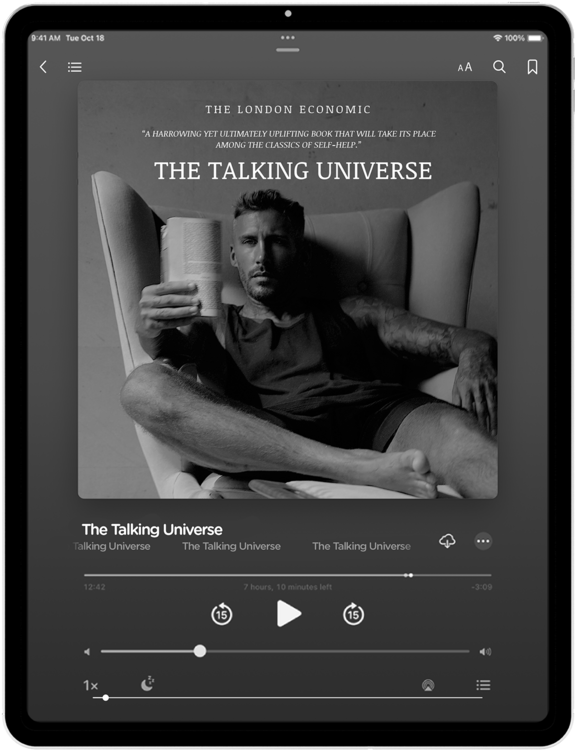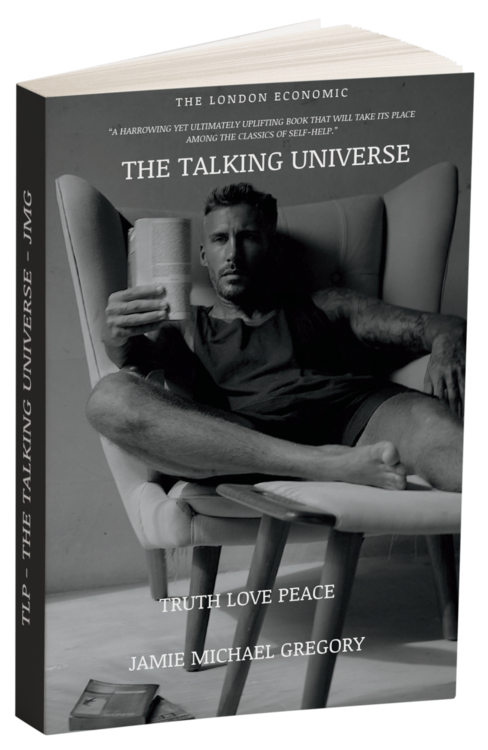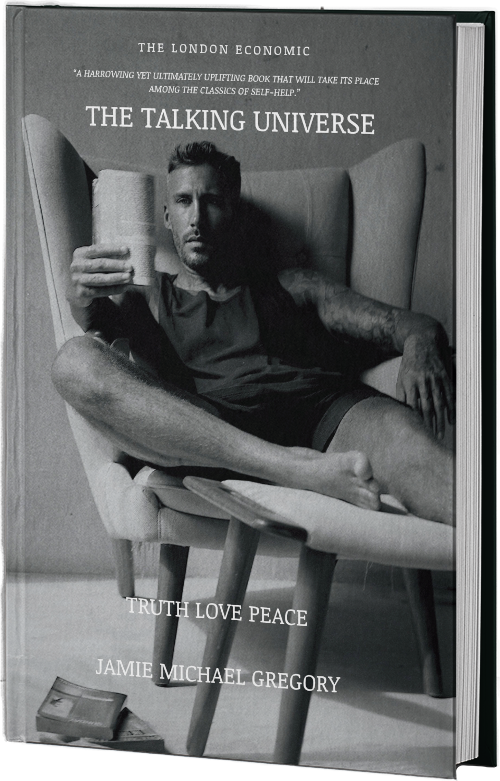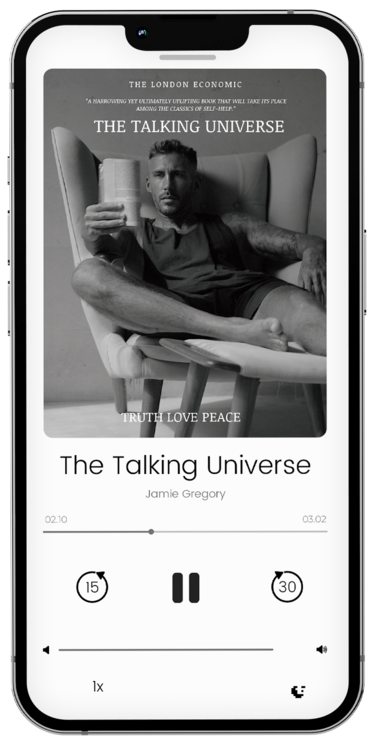Books
Pick your favourite format:
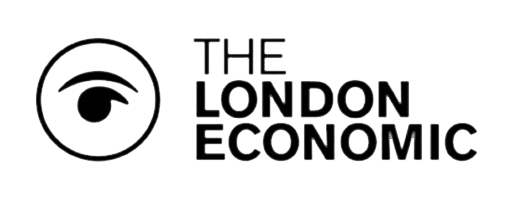
“The Talking Universe by Jamie Michael Gregory is a supercharged book of emotion, pain and hope – a must read for anyone interested in the true path of healing.”
“The Talking Universe is definitive proof that there is always light at the end of the tunnel. For those lost in despondency, it is the vital compass to guide you forward in life.”

“The Talking Universe is essential reading for those seeking clarity, energy, and purpose in their daily lives.”
“Jamie Michael Gregory’s life is a blueprint for the success that can be achieved despite staggering obstacles.”
“In his new book The Talking Universe, Jamie Michael Gregory shares unparalleled insight into what is needed to expedite solutions for today’s most critical mental health challenges among young people.”

“Spiritual author Jamie Michael Gregory started out as a survivor but is now the perfect role model and healing guide helping people overcome trauma and addiction.”
“The Talking Universe is a unique healing memoir which will motivate you to transform your life for the better.”
“Jamie’s harrowing life story is unfiltered, unaffected, and unmissable.”

“When you read his new book, The Talking Universe – a potent combination of autobiography, spiritual discovery, and self-development – you will likewise be amazed that not only has Jamie survived a desperately harrowing upbringing marked by abuse, crime, and addiction, but also that he has conquered his personal demons, overcome deep-set trauma, and been reborn.”
“It’s fair to say that The Talking Universe is the most powerful story of self-healing and spiritual growth since Paulo Coelho’s The Alchemist.”
“Spiritual author and healer Jamie Michael Gregory’s book The Talking Universe is a hard-hitting, thought-provoking debut. By following Jamie’s path you, too, can look forward to healing and rebirth.”
“The Talking Universe is unique, inspirational, and a must-read for anyone looking for answers in their own life.”
Editorial Review

The Talking Universe by Jamie Michael Gregory
By Timothy Arden
Jamie Michael Gregory’s remarkable debut book The Talking Universe is a potent combination of autobiography, spiritual discovery, and self-development … and a must-read for all those seeking to understand the purpose of healing in their own life.
The modern-day equivalent of Paulo Coelho’s The Alchemist, The Talking Universe deals with challenging themes that have had a profound impact on his life – mental health, trauma, addiction, and abuse – while simultaneously looking at how failures in current social systems detrimentally affect the collective wellbeing of society.
As a deeply harrowing yet incredibly uplifting autobiography that will take its place among the classics of self-help literature, the book conveys his hard-earned thoughts and guidance on these timely topics through simultaneously sharing his life story.
In vivid language, Jamie, now 37, reveals the barbaric foundations of his trauma, imprinted through a father who abused him physically, mentally, and emotionally, while sucking him in from an early, impressionable age into his sordid life of vice and crime.
It is certainly not for the faint-hearted and I was pained to read about the tragic neglect that the author experienced, but this full declaration of injuries received, and wrongs committed as a consequence, keeps you hanging on his every word, if only with the hope that the pressure will be released.
It’s the sort of life story that, in the retelling, should come with a trigger warning. There is disturbing child abuse and violence, beatings with wood and a particularly disturbing incident where Jamie’s face is smeared in cat faeces.
It’s no surprise that the staggering cruelty led to deep-rooted issues and confusion within his young mind, conjuring demons that would continue to plague him throughout his early adulthood.
As Jamie, an expert on trauma, puts it, these negative incidents caused early damage to his frontal cortex – or processing part of the brain – which left him emotionally withdrawn, detached, and desperately trying to seek healing from external sources.
At first, this ‘inversion’ of healing, mistakenly looking to the outside world for some soothing balm for his problems, came in the form of drug dependence.
Yet as he reached his late 20s, he was able to seemingly land on his feet through working extremely hard, finding himself running not one but two profitable businesses, which brought with it a luxury lifestyle.
Sadly, with his inner trauma unresolved and festering within, his new-found wealth only offered a distraction by creating a temporary fix over his unresolved trauma, and this then led him into new temptations that, compromised as he was, he was unable to recognise as danger signs until already fully immersed.
In his late 20s, he reached his lowest ebb, and all those years of emotional damage caused him to attempt suicide, as he explains in his book.
Yet, faced with his own dark night of the soul, he eventually began to see a path which would become his purpose. He then began a long, and incredible, journey that led to self-healing, self-acceptance and, ultimately, self-love.
The second half of The Talking Universe details this astonishing and uplifting story of his spiritual awakening, and by so doing provides the tools and framework for readers to understand and follow in the author’s footsteps.
The key takeaway is that transformation and healing only begin to happen when you have a conscious intention to want better from life, surrender to the current circumstances and emotions and foster acceptance of the past, present, and where you are now at in life.
Of course, it’s not that simple. There is a lot of push-and-pull resistance along the path which is also not linear, as the author points out.
It is this – rather than running from or burying pain as the majority of society do unconsciously, including Jamie for many years – when we embrace the darkness within and understand that it is part of who we are, only then, says the author, can a person begin the journey of transforming.
As a fan of Buddhist psychology myself, I resonated with much of what is in this book – that it is essential to understand and confront pain and failure, and that this path too offers a chance to learn and evolve.
But I also loved the way The Talking Universe – the first of three connected books planned by the author – was constructed.
His story is both raw and scientific at the same time, exploring the intricacies of psychology and how the brain works, as well as providing research into why so much trauma and detachment occurs in society, and how the norms of contemporary life such as social media, pharmaceutical interventions, and social stigmas, are only fuelling this.
And it is also light and dark, drawing on the horrors of Jamie’s youth but contrasting them with the hope of eventually being brought back together through natural means.
The book is an extraordinary accomplishment, showing great intelligence and wisdom with the promise, unlike many self-help books, of revealing a realistic expectation of life and what we can all achieve.
For anyone who wants to understand themselves with more clarity, heal past trauma and begin to live a life free of pain, I cannot recommend this book enough.
Flip the pages
Look inside the book
Listen to the introduction
Free Audio Sample
Loved the book?
Leave me a review on Amazon

